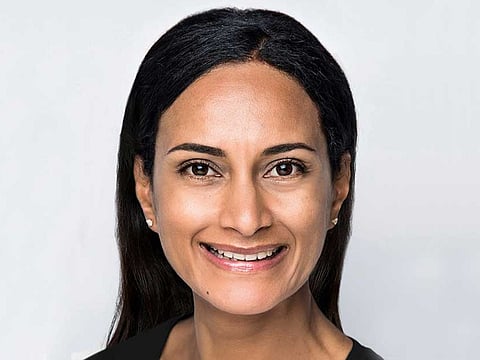Number of ‘likes’ on social media cause of envy
Study shows 41 per cent of survey takers in UAE admit to feeling envious when they see happier lives of their friends on social media

Dubai: You may be posting a picture or updating your status on social media to share your happiest memories with family and friends, however the number of likes you receive could be causing others to feel jealous.
A recent study from Kaspersky Lab indicated that social media now leaves many people feeling negative, with as many as 41 per cent of survey takers in the UAE admitting to feeling envious when they see the seemingly happier lives of their friends on social media.
The desire for ‘likes’ plays a central role in this, with a majority of people feeling upset when their friends get more likes than them.
The study, which surveyed 16,750 people worldwide, found that people often experience negative emotions after spending time on social media due to a variety of reasons, and these overpower the positive effects of social media. Dr Jamila Motala, clinical psychologist at Light House Arabia in Dubai, explained the tendency of feeling jealous due to the number of likes as one that indicates insecurity and lack of self-esteem in a person. “Jealousy and envy may be underpinned by core beliefs such as ‘my value depends on what others think of me,’ or ‘I am not good enough’,” said Dr Motala.
She pointed out people live in environments, which are increasingly busy, demanding and with greater expectations to be successful, and human beings naturally strive for acceptance and a sense of belonging.
The survey showed that people devote a significant amount of time for creating their digital profile and filling it with all kinds of positive moments — 77 per cent said they post things that make them smile, while 52 per cent like telling their networks about the great time they had during holidays and vacations.
Posts and interactions about holidays, hobbies, and parties, which should be spreading positive feelings among users, are somehow the cause of envy and bitterness.
The study showed 65 per cent have admitted to feeling unhappy on seeing friends’ posts from a party they were not invited to, and 51 per cent revealed that their friends’ happy holiday pictures have had a negative influence on them. Feeling that others are enjoying life more, 44 per cent of respondents admitted that looking at past happy posts of themselves can leave them with the unsatisfactory feeling that their own past was better than their present life. These feelings are emphasised when the number of likes on a post or picture is very high or, yet, still growing.
Quality of Likes
“While the number of likes could provide a quantitative measure of someone’s popularity, it is also important to consider the quality of these likes,” added Dr Motala.
Just the same, Farrukh Naeem, social media strategist and tech influencer based in Abu Dhabi, explained that a ‘like’ could represent many things to different people. It could say ‘I agree with you’, ‘I acknowledge you’, ‘I like what you’re saying’, or ‘this is a good product’, depending on the context and user clicking on it.
The more likes a post or a piece of content gets on social media, the faster it rises to the top of people’s timelines and the longer it stays there, explained Naeem. “More likes indicate content that is more popular, however there is also genuine content not being noticed and mediocre content rising up because of users and accounts who have learnt how to game the algorithm,” he said.
The social media amplifies everything and offers everyone an opportunity to rise, but those who are not real or authentic get called out sooner or later, he said.
“You may temporarily impress people with the number of followers or likes you have but in the long term, what survives and builds true influence and thought leadership is your character, integrity and how you treat people online and offline,” said Naeem.
He pointed out the difference between people who come to social media to create positive change and enrich people’s lives, and those who use the medium to compare their lives with others and show off their achievements. “Such people will never find peace because there will always be someone in the world who has more things than you — social media only makes it easier to see that fact,” said Naeem.
“Some of the greatest viral stories of our time are not of people showing off their possessions but people doing selfless acts for others. I say compare, compete and learn from all that goodness on social media,” he added.
Sign up for the Daily Briefing
Get the latest news and updates straight to your inbox



